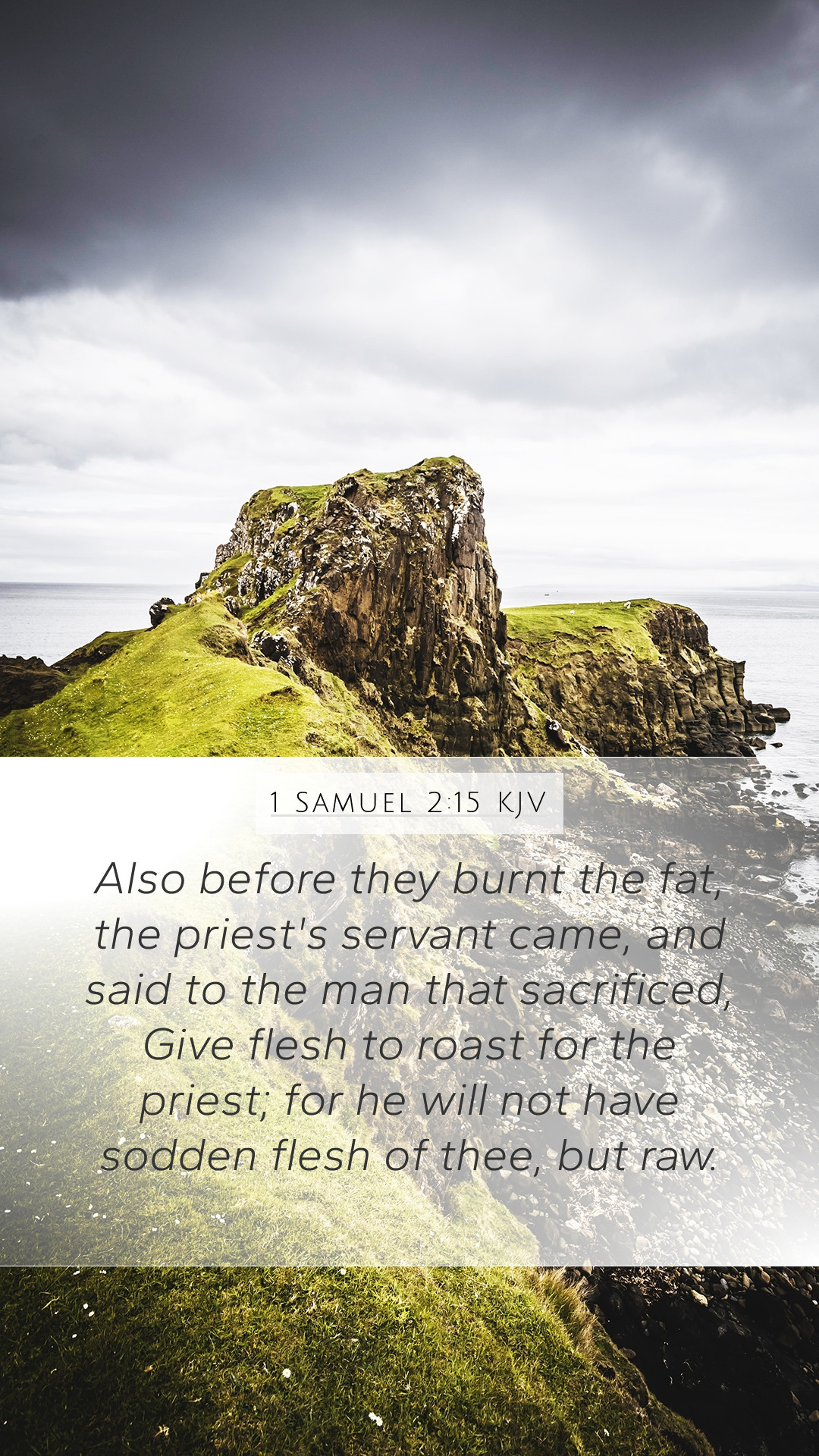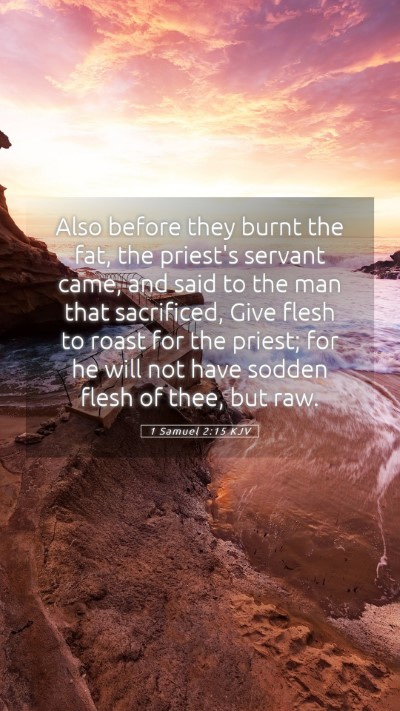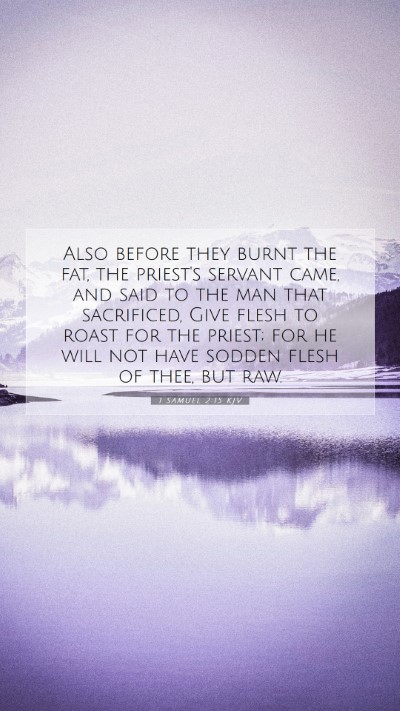Understanding 1 Samuel 2:15
Verse Reference: 1 Samuel 2:15 - "Also before they burnt the fat, the priest's servant came, and said to the man that sacrificed, Give flesh to roast for the priest; for he will not have sodden flesh of thee, but raw."
Overview
This verse provides insight into the practices of the priests during the time of Eli and illustrates the corruption present in the priestly office. Understanding this verse requires considering both its historical context and the theological implications of such conduct.
Detailed Commentary Insights
Matthew Henry's Commentary
Matthew Henry notes that the actions of the priests were particularly egregious because they disregarded the established sacrificial system. Priests were entitled to certain portions of the offerings, but demanding raw flesh before the fat was offered to God demonstrated irreverence and greed.
Albert Barnes' Notes
Albert Barnes emphasizes the violation of sacred protocol. He elucidates that the approach of the servant for raw flesh, rather than allowing the rightful due of God in the burnt offering, reflects a shocking disregard for the Lord's commandments. This passage highlights the moral and spiritual decay within Israel's leadership, which ultimately led to their downfall.
Adam Clarke's Commentary
Adam Clarke analyzes the underlying implications of this practice. He suggests that such behavior among priests leads the people astray from true worship and faithfulness to God. Clarke points out that the insistence on raw flesh signifies a prioritization of personal gain over the sacredness of the offerings meant for God.
Key Themes and Applications
- Corruption in Leadership: The abuse of power by religious leaders can lead to widespread spiritual degradation among the people.
- Understanding Scripture: This passage serves as a warning against taking liberties with divine practices and encourages adherence to God's commandments.
- Bible Study Insights: Analyzing such verses can cultivate deeper awareness of how sacred rites should be honored, both in historical and modern contexts.
- Application to Daily Life: Believers are urged to reflect on their personal conduct and ensure that their actions align with their spiritual commitments, especially regarding worship and serving others.
Cross References
- Leviticus 7:30-34 - Instructions on the portions for the priests from the sacrifices.
- Malachi 1:6-8 - Rebuke of the priests for offering defiled food.
- 1 Samuel 3:13 - God’s judgment on the house of Eli for ignoring iniquity.
Conclusion
1 Samuel 2:15 serves as a critical examination of the spiritual and moral failings of the priests in Israel, revealing the consequences of neglecting the sanctity of divine commands. By studying this passage, individuals can acquire valuable Bible verse meanings, gain deeper Bible verse interpretations, and apply the principles to strengthen their faith and worship practices.
Importance of Biblical Exegesis
Engaging with Biblical exegesis allows one to dig deeper into scripture analysis. Understanding difficult Bible passages, like 1 Samuel 2:15, can transform one's view of the Old Testament and shape how they approach theological concepts. Through careful analysis, believers can glean significant meanings and apply these teachings to various Bible study plans and topics, enriching their walk with God.


